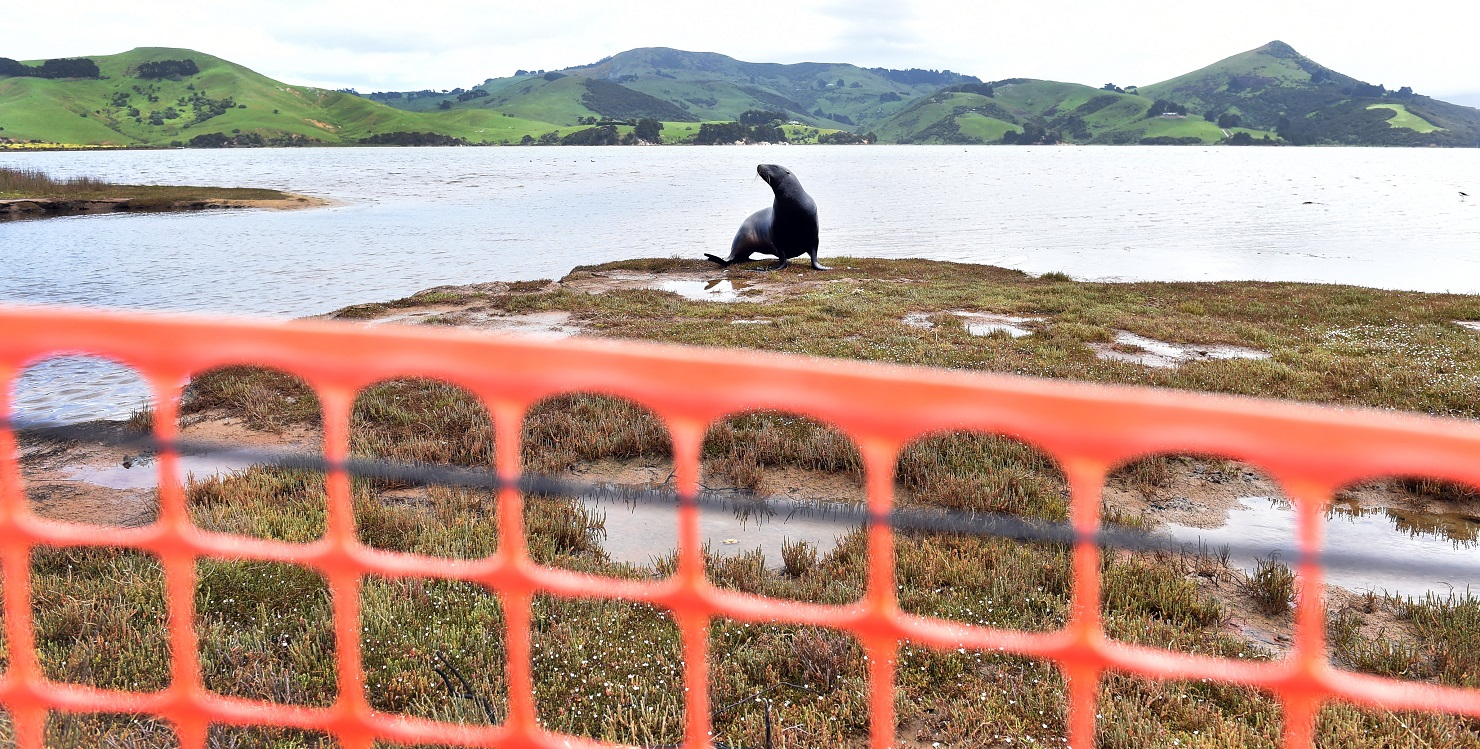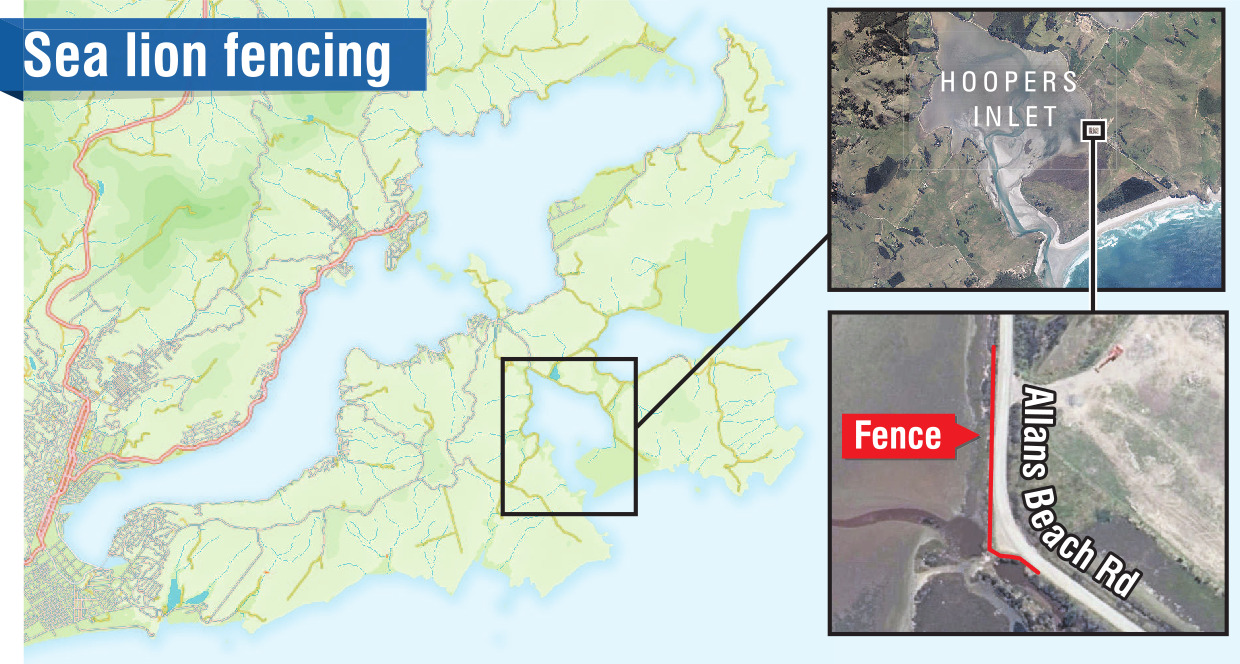A record 22 sea lion pups were born along Dunedin’s coast last summer, but two were killed by motorists near where the 40m fence is planned.
Pregnant females hide themselves away on Dunedin beaches to have their pups alone, starting at the end of this month.
However, as the pups become older, Otago Peninsula’s two large coastal inlets — Papanui and Hoopers Inlets — start to be used as nurseries.
Department of Conservation biodiversity ranger Jim Fyfe said temporary fencing had been used in the area for the past five years or so.
The new fence would be installed next month during what he expected would be another record breeding season for the animals.
From late February to June, more than half of Dunedin’s breeding females used the small pool in Hoopers Inlet along Allans Beach Rd as a nursery for their pups.

"It is a really significant creching area," he said.
"As sea lions increase around our coastline we are going to encounter more and more situations where we are going to have to adapt how we go about our day-to-day life.
"They’re just arriving back and our habitats overlap so completely.
"Taking time to think about how we can accommodate them is a significant step.
New Zealand Sea Lion Trust co-chairwoman Bryony Alden said the fence was good news for the marine mammals.
It was "obviously" not practical to fence the whole inlet, but the fence would help to separate the animals from people, as well as remind motorists to slow down on those inlet roads on the peninsula where sea lions could be present at any time.

"Any female that we lose at any age is pretty devastating for the population," Ms Alden said.
"We just really hope that people start to take notice and that people slow down and we don’t have a repeat of last season."
A Dunedin City Council spokesman said at the request of the Otago Peninsula Community Board, the council’s transport department was pleased to be able to work with Doc and the sea lion trust on the project.
"Sea lions are an endangered species so the installation of permanent fencing is very important to ensure our local wildlife is protected from vehicles.
"We remind motorists to be mindful of their speed along the peninsula and give wildlife their space if they do encounter them," he said.











